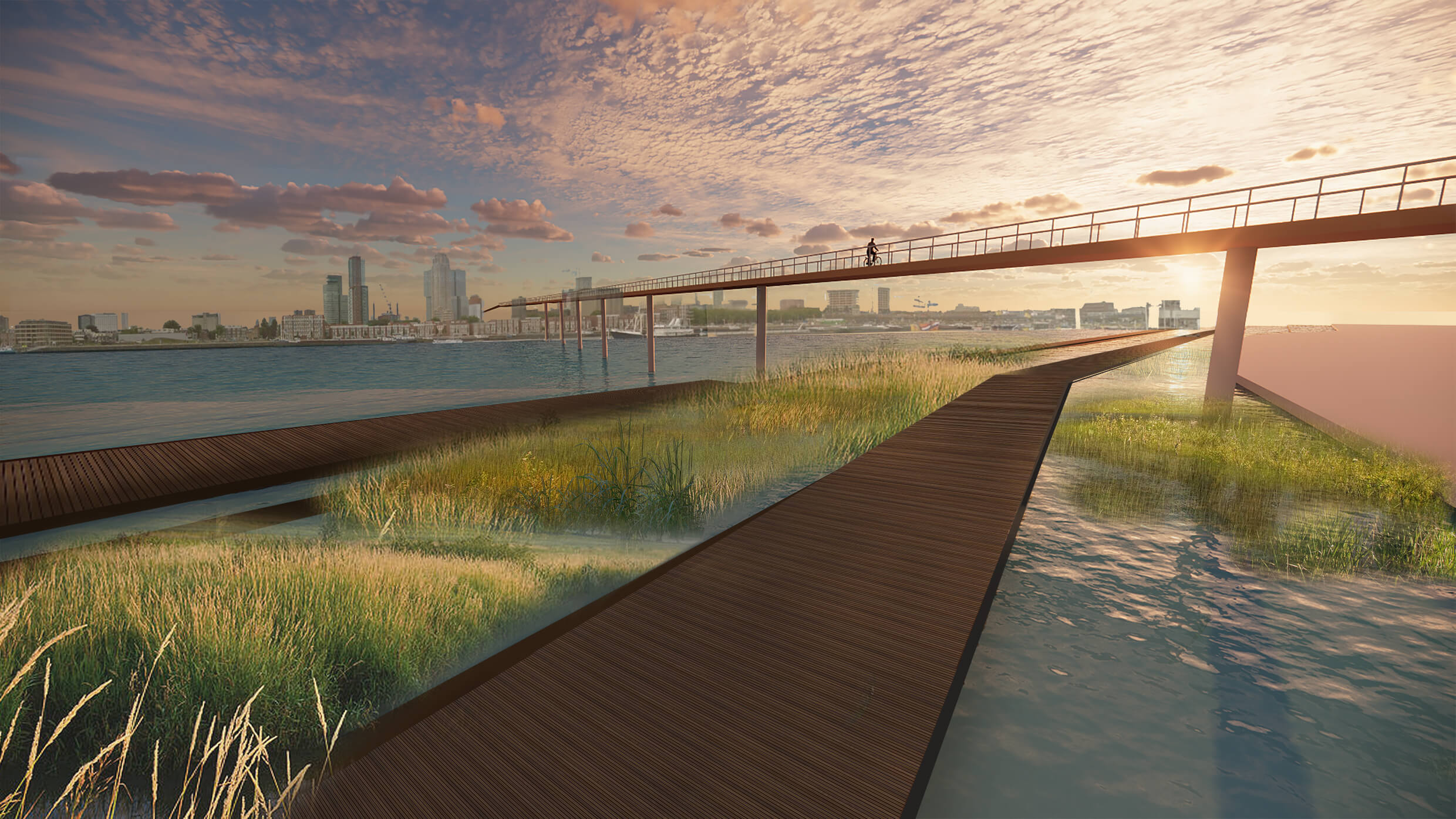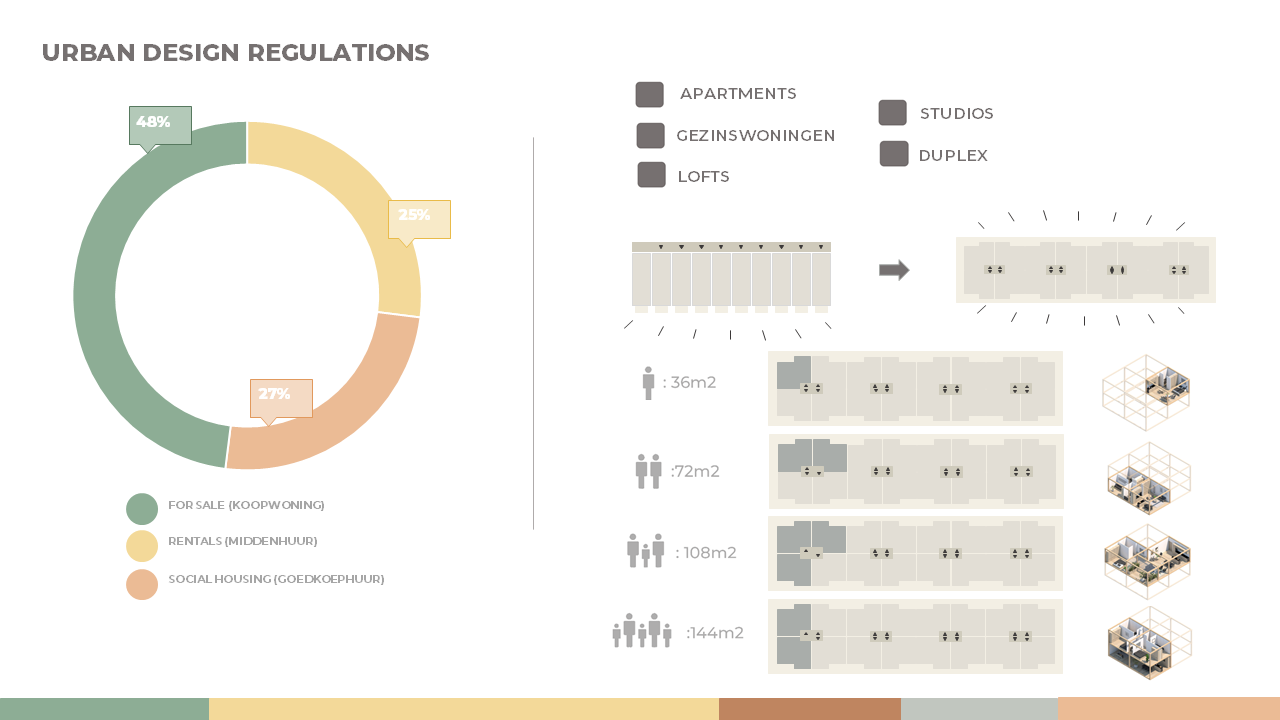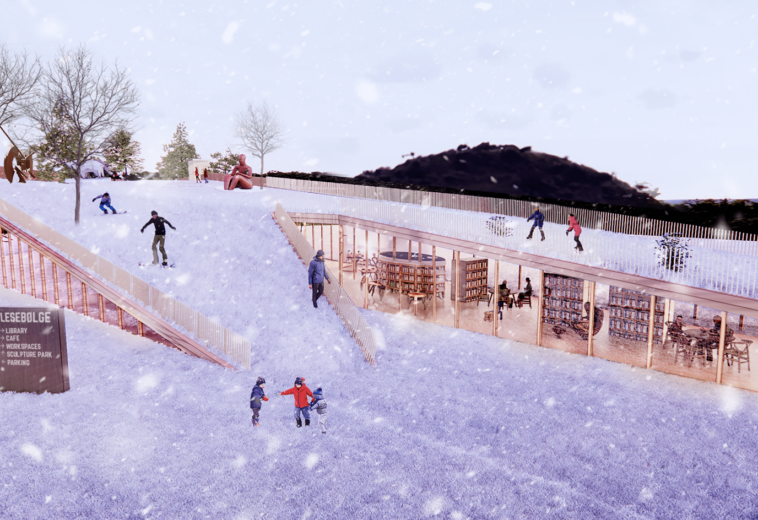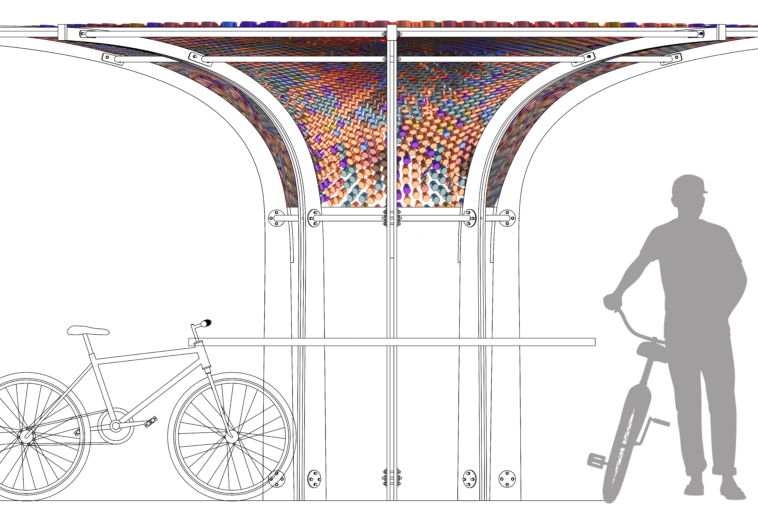Think local, think Tarwewijk!
Strengthening identity as a port-city through a self-sustaining neighborhood
As part of our 2nd year BSc course Sustainable Urbanism, we proposed an urban design for the neighborhood Tarwewijk in Rotterdam– with the aims of strengthening its identity as a port-city, integrating middle-up/middle down approaches, generating mixed-use amenities, and integrating principles of the “woonerf” to create a pedestrian-friendly neighborhood.
We conceptualized an elevated bike path over the river Maas, connecting Kop van Zuid with Tarwewijk. The hard shorelines and underemployed docksides are reimagined as a temporary ecological zones– a tidal park integrating wetlands, marshlands, urban farms and fish farms. It gives rise to a bio-circular green economy with residents as active producers rather than just consumers.
The vision for a “5-minute city” is reinforced by shared facilities like co-working hubs, daycare, retail, cafes and communal dining options which are incorporated in the plinth of the building. The multi-use plinths reinforce a middle-down approach of connecting authorities & businesses with local vendors— which promotes career opportunities for residents.
Principles of the “woonerf” are applied in order to generate a low-traffic neighborhood. Landscaping and street furniture, shared and paved spaces, physical barriers and visible entrances promote a pedestrian-oriented street. The open block typology transitions to a plaza, a vibrant communal street that incorporates a multi-use wooden deck and wadi, and finally into communal green play areas. Furthermore, the openness of the shared streets encourages safety, inclusiveness, and community-building.
